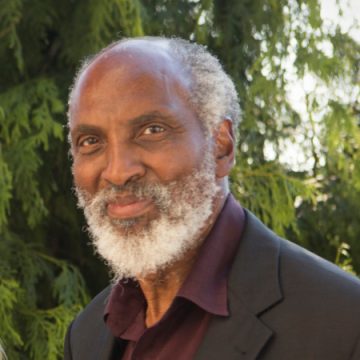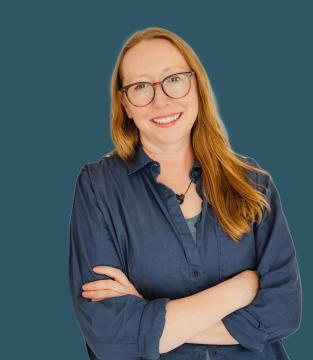Story
Phyllis May-Machunda
Fellowship: 10 Years Out

“There’s so much that needs to be done to make things better for humanity.”
Phyllis May-Machunda (BF’07) knows the value of persistence. She took a 20-year step away from pursuing a doctorate in folklore and ethnomusicology, and used her Bush Fellowship to earn her degree.
The professor of American Multicultural Studies at Minnesota State University-Moorhead (MSUM) began her career as a folklorist with the Smithsonian Institute in Washington, D.C. During the 1980s, May-Machunda interviewed dozens of African-American cheerleaders to understand the undocumented history of the sport. Her fieldwork provided insight into what she called a tradition of resistance to segregation in schools.
She put her dissertation work on hold in 1987 when she gave birth to her daughter, who was born prematurely with several health complications. May-Machunda and her family then moved to Minnesota. She began teaching at MSUM, where her colleagues told her about the Bush Foundation. She received a Fellowship in 2007 and took a sabbatical. May-Machunda planned to finally finish her dissertation.
“The Bush Fellowship allowed me to take care of myself as a scholar, which is what I had intended my career to be,” she said. “I think, as a result, it solidified my standing professionally and allowed me to realize the potential I had.”
May-Machunda continues to establish herself as a voice of folklore and social justice. She recently reinstated a 2001 anti-racism initiative at MSUM, which led to a training of university staff members. Shortly after that, faculty from across the campus came together to transform their curriculum using a racial equity lens.
She received the 2014 Moorhead Human Rights Commission Award which was presented at the American Association of Colleges and Universities’ Diversity Conference. She was also elected to the Executive Board of the American Folklore Society. May-Machunda began collaborating with the Minnesota Humanities Center on the Absent Narratives Project, where she bridges communications between new Americans and teachers in the Fargo-Moorhead area.
“There’s so much that needs to be done to make things better for humanity. I think if you care and invest in that opportunity, then the Bush Foundation opens doors for you to do more,” May-Machunda said.
She is now back on sabbatical in Washington, D.C. at the Smithsonian Center for Folklife and Cultural Heritage. She has been awarded a post-doctorate fellowship and plans to expand on her dissertation and turn it into a book.
“I learned persistence. You don’t give up on your dreams when you face challenges,” May-Machunda said. “It may take you a long time, but if you remain true to your dreams, you can achieve them.”
Illustration by Allegra Lockstadt
Continue reading
-

News
Power of Bridging Event
Mark your calendars for a special community event with john a. powell! Thanks to our friends at MPR News, we'll be hosting john at the Fitzgerald Theater on December 2 and hope you can join us!
-

News
Celebrating the 2025 Bush Prize honorees
Learn more about the 2025 Bush Prize honorees who are helping to make our region better for everyone!
-

News
Welcome to new Bush staff members
We are celebrating some new Bush colleagues and hope you get to meet them soon!